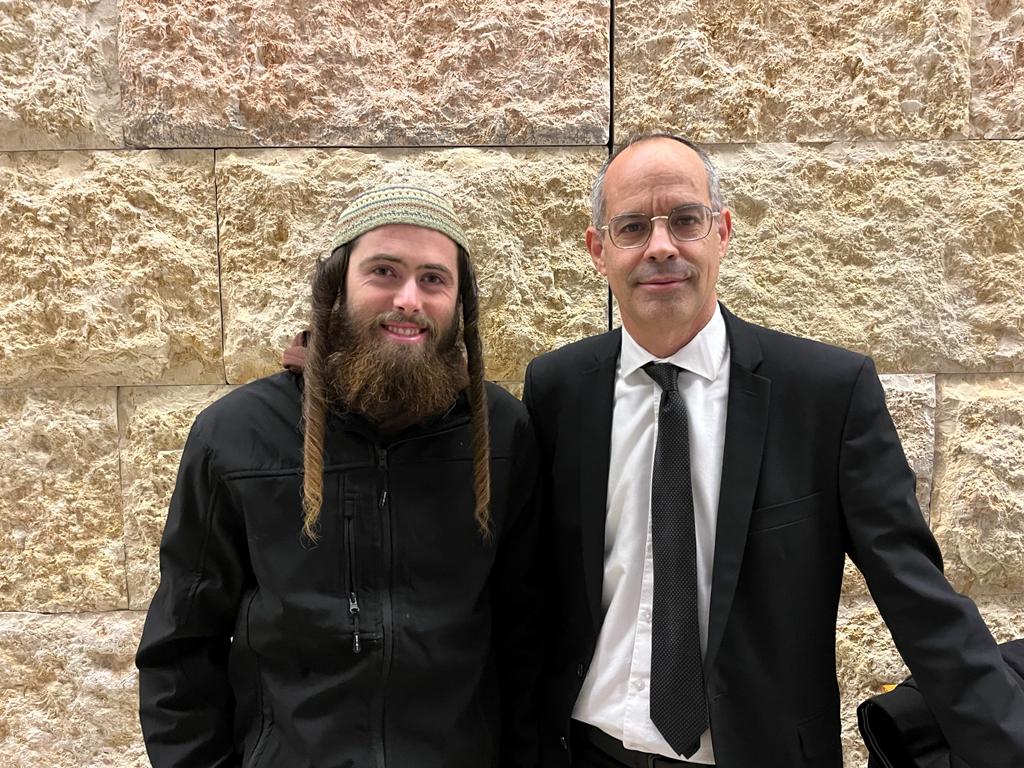Thursday, January 25, 2024, 8:00 Honenu Attorney Adi Keidar wrote a letter to the Jerusalem District Court on behalf of right-wing activist Elisha Yered requesting that a decision ordering the continuation of an administrative order against him be rescinded. The order was issued by the GOC of the Central Command, Major-General Yehuda Fuchs in October 2023, and bans Yered from Yehuda and Shomron, including his home in the Binyamin region, for six months, until April 2024. Attorney Keidar wrote to the appeals committee of the military court objecting to the order. They reduced the duration of the order to the end of 2023. Subsequently, Maj.-Gen. Fuchs appealed to the Jerusalem District Court to cancel the committee’s decision. The District Court accepted the appeal and reinstated the longer duration of the order. Attorney Keidar appealed that decision to the Supreme Court.
At the Supreme Court hearing, it was revealed that the District Court decision was handed down in light of confidential material that the security system presented to the judge. Attorney Keidar was not given an opportunity to examine the material. The Supreme Court justices leveled criticism at the District Court but upheld their decision. In light of the criticism, Attorney Keidar is demanding that the District Court rescind their decision.
In his letter, Attorney Keidar wrote, “It turns out that the [State Attorney’s office] included new material that had not been presented to the committee, without either explanation or authority and most importantly, without the consent of the defense. Thus they inappropriately influenced the proceedings and their results. Examination of new evidence by the appellate court is an egregious error when the matter at hand is the examination of confidential material of which the very act of examining it depends on the consent of the respondent, and particularly when the GSS, the respondent in the appeal explicitly states that they allow examination of the confidential material on the condition that it does not deviate from the material already presented to the appeals committee.”
Attorney Keidar also raised the issue that part of the evidence on which the security system based their demand not to reduce Yered’s administrative restraining order barring him from entering Yehuda and Shomron was his detention in the Jordan Valley approximately one month ago. The detention was based on a claim that he had violated the conditions of his restraining order. However, the case on that detention was closed after only two weeks: “During the hearing before this honorable court, the State attempted to defame the appellee with regard to the case of the [administrative order] violation for which a different court ruled that there is a doubt that it occurred. But rather at the Supreme Court hearing, it turned out for the appellee that also in this matter the State had imprecisely presented the situation, to put it mildly, in an attempt to be stringent and defame the appellee by misleading the honorable court. The intention is that on December 20, prior to the same hearing and declaration that ‘an indictment has still not yet been filed’, the investigative case in question was closed – yet another intentional or unintentional misleading act that in effect influenced a legal decision and ruling on the matter of human rights, based on erroneous material.”
Attorney Keidar further asked the court to rescind the ruling that Yered be banned for the longer period of time: “Under these circumstances, the honorable court’s ruling was in fact handed down on the basis of material that was transferred for their examination outside of an acceptable legal framework, and on the basis of the errors in the matter of an open investigative case of a violation that was recently closed. Therefore the ruling should be rescinded.”
Honenu Attorney Adi Keidar commented on the case: “At the Supreme Court hearing, it was revealed that the State Attorney’s office and the GSS presented additional material to the Jerusalem District Court without our consent. The Supreme Court justices sharply criticized this act. Subsequently, we filed a request to rescind the ruling. We hope that the verdict will correspond to what the Supreme Court justices stated and that the court will rescind the ruling.”

